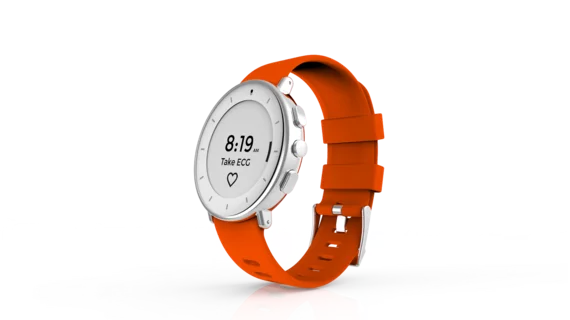FDA clears ECG feature for ‘prescription-only’ smartwatch
Another smartwatch has received FDA clearance for an electrocardiogram (ECG) feature. But this one—the Study Watch from Alphabet’s health division, Verily—is a “prescription-only device” rather than a product marketed to all consumers.
The subsidiary of Google’s parent company plans to conduct research with the device on how best to gather health data with a wearable, according to The Verge.
The FDA’s clearance of the watch as a Class II medical device means the agency hasn’t made any judgments on the efficacy of the device but has deemed it safe to use. Similar to the consumer-focused Apple Watch, which is also cleared by the FDA, the Study Watch takes single-lead ECG readings.
According to Verily, health information and biometric data captured by the watch are uploaded to the cloud and processed using algorithms and machine learning tools. The device is indicated for use “by healthcare professionals, adult patients with known or suspected heart conditions and health conscious individuals,” wrote Michael V. McConnell, MD, the head of cardiovascular health innovations at Verily, in a blog post announcing the FDA clearance.
McConnell said Verily’s work with the ECG application is part of the company’s goal to collect and organize many types of healthcare data—from biometric data with a wearable like the Study Watch to traditional clinical information garnered from medical images and electronic health records.
“This work may ultimately give us insights into the utility of integrating mobile health data into the clinical care environment, and how these data can support the physician-patient relationship,” he wrote. “Our collaborative team of clinical and data scientists, engineers, regulatory and legal experts, user experience designers and more are helping us pursue this vision. Together, we are working towards a future where we can use devices, like the FDA-cleared Study Watch, to inform real-world, personalized care decisions and help us move to proactive healthcare.”

